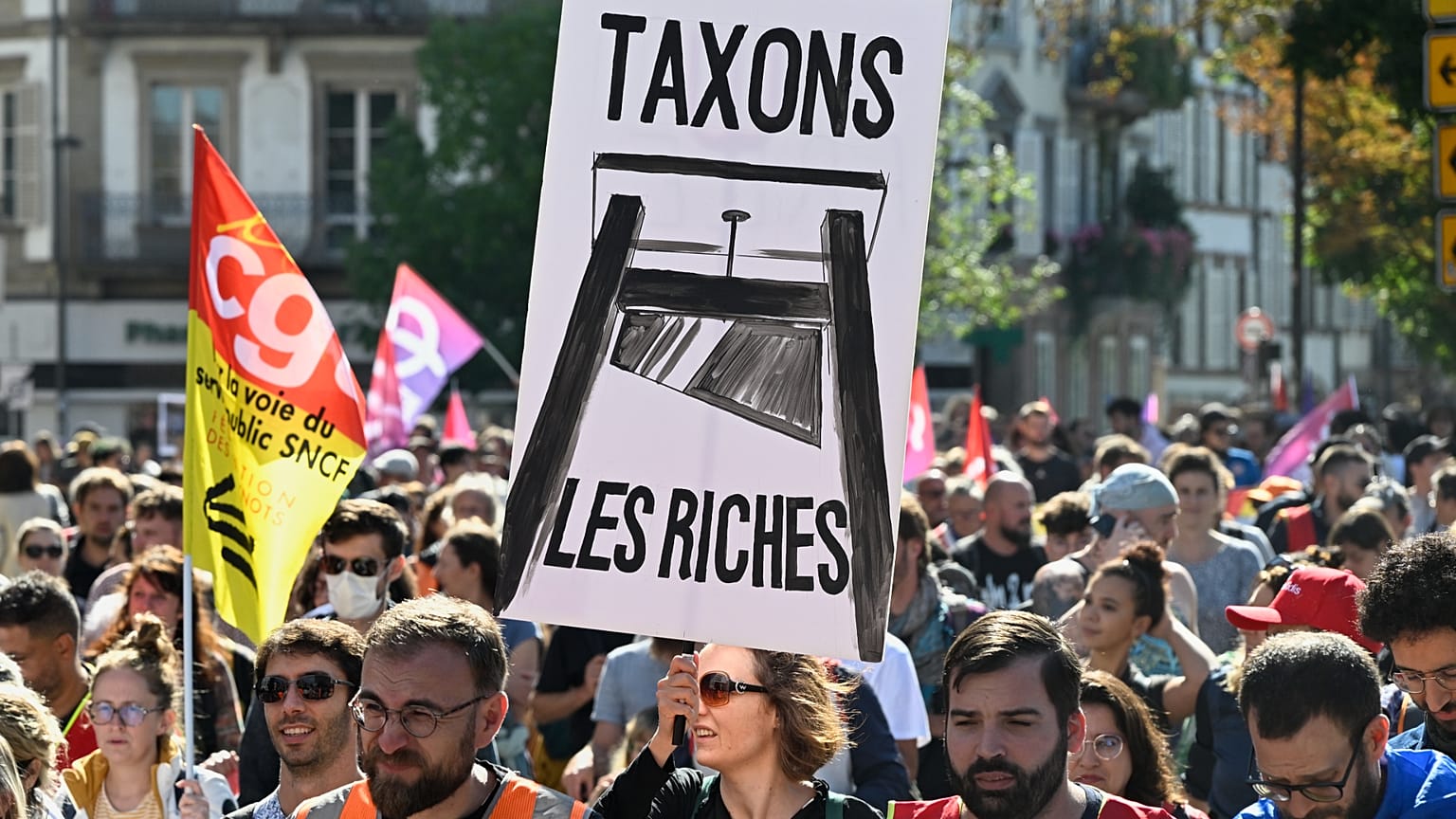Top Stories
European Wealth Taxes: Current Rates and Controversies Revealed

UPDATE: As of early 2025, the landscape of wealth taxes in Europe is rapidly changing, with only three countries—Spain, Norway, and Switzerland—continuing to levy taxes on individual net wealth. This urgent development comes amid rising wealth inequality, with the top 5% in the eurozone controlling a staggering 45% of net household wealth, as reported by the European Central Bank (ECB).
The debate over wealth taxes is intensifying, highlighted by French billionaire Bernard Arnault, who recently condemned a proposed 2% levy on assets exceeding €100 million, describing it as “an offensive that is deadly for our economy.” As discussions around wealth taxes gain momentum, the financial implications could be profound for millions across Europe.
Wealth Tax Breakdown: The only countries collecting individual wealth taxes as of 2025 are:
– **Spain**: Imposes a progressive net wealth tax ranging from 0.16% to 3.5% on wealth above €700,000. An additional “solidarity wealth tax” was introduced in 2022, applying to individuals with net assets exceeding €3 million, with rates reaching 3.5%.
– **Norway**: Charges a net wealth tax of 1% on wealth exceeding NOK 1.7 million (€145,425) and increases to 1.1% for wealth above NOK 20 million (€1.71 million).
– **Switzerland**: Has relatively low exemption thresholds, impacting the middle class. Wealth tax rates start at 0.05% in Zurich for single taxpayers with assets above CHF 80,000 (€85,560) and increase to 0.3% for wealth exceeding CHF 3.26 million (€3.49 million).
Several countries, including France, Italy, Belgium, and the Netherlands, impose taxes on specific asset classes rather than overall net wealth. For instance, France has a real estate wealth tax on properties valued at over €1.3 million, with rates reaching 1.5%.
Tax Revenue Insights: The financial yield from these taxes remains modest. In 2023, Switzerland collected €9.5 billion from wealth taxes, constituting 4.3% of total tax revenue, while Spain generated €3.1 billion (0.6%). Norway and France reported €2.7 billion (1.5%) and €2.3 billion (0.2%) respectively.
Despite growing discussions around implementing wealth taxes to combat inequality, the trend has shifted towards repealing them. According to economist Cristina Enache from the Tax Foundation, the number of OECD countries with such taxes plummeted from 12 in 1990 to just 4 in 2017, with notable nations like Austria, Germany, and Denmark abandoning them.
Next Steps: As governments grapple with wealth distribution and revenue generation, the future of wealth taxes remains uncertain. The potential for capital flight poses challenges, as higher taxes on affluent citizens could lead to their relocation to more favorable jurisdictions. This could result in significant losses in tax revenue for European nations, highlighting the urgent need for balanced fiscal policies.
Stay tuned for further updates on this developing story as European countries navigate the complexities of wealth taxation.
-

 Top Stories2 months ago
Top Stories2 months agoTributes Surge for 9-Year-Old Leon Briody After Cancer Battle
-

 Entertainment3 months ago
Entertainment3 months agoAimee Osbourne Joins Family for Emotional Tribute to Ozzy
-

 Politics3 months ago
Politics3 months agoDanny Healy-Rae Considers Complaint After Altercation with Garda
-

 Top Stories3 months ago
Top Stories3 months agoIreland Enjoys Summer Heat as Hurricane Erin Approaches Atlantic
-

 World4 months ago
World4 months agoHawaii Commemorates 80 Years Since Hiroshima Bombing with Ceremony
-

 Top Stories2 months ago
Top Stories2 months agoNewcastle West Woman Patricia Foley Found Safe After Urgent Search
-

 Top Stories4 months ago
Top Stories4 months agoFianna Fáil TDs Urgently Consider Maire Geoghegan-Quinn for Presidency
-

 World4 months ago
World4 months agoGaza Aid Distribution Tragedy: 20 Killed Amid Ongoing Violence
-

 World4 months ago
World4 months agoCouple Convicted of Murdering Two-Year-Old Grandson in Wales
-

 Top Stories3 months ago
Top Stories3 months agoHike Donegal’s Errigal Mountain NOW for Unforgettable Summer Views
-

 World4 months ago
World4 months agoAristocrat Constance Marten and Partner Convicted of Infant Murder
-

 Top Stories3 months ago
Top Stories3 months agoClimbing Errigal: A Must-Do Summer Adventure in Donegal









